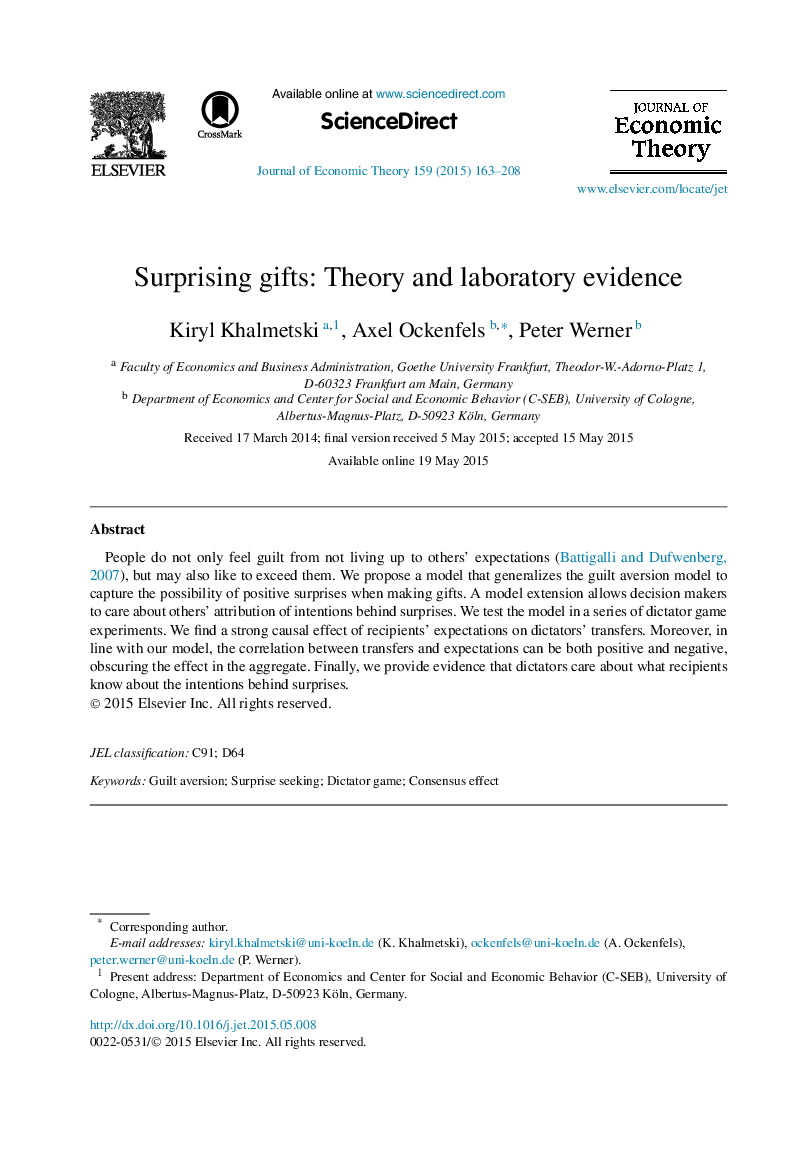| Article ID | Journal | Published Year | Pages | File Type |
|---|---|---|---|---|
| 956838 | Journal of Economic Theory | 2015 | 46 Pages |
Abstract
People do not only feel guilt from not living up to others' expectations (Battigalli and Dufwenberg, 2007), but may also like to exceed them. We propose a model that generalizes the guilt aversion model to capture the possibility of positive surprises when making gifts. A model extension allows decision makers to care about others' attribution of intentions behind surprises. We test the model in a series of dictator game experiments. We find a strong causal effect of recipients' expectations on dictators' transfers. Moreover, in line with our model, the correlation between transfers and expectations can be both positive and negative, obscuring the effect in the aggregate. Finally, we provide evidence that dictators care about what recipients know about the intentions behind surprises.
Keywords
Related Topics
Social Sciences and Humanities
Economics, Econometrics and Finance
Economics and Econometrics
Authors
Kiryl Khalmetski, Axel Ockenfels, Peter Werner,
